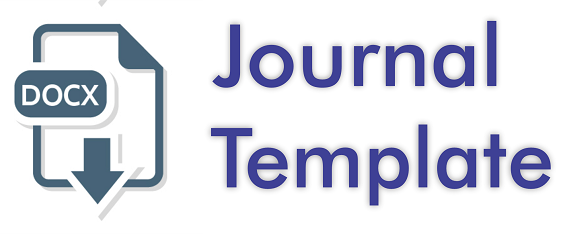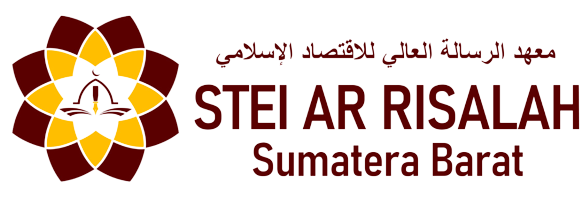Pola Perilaku Konsumsi Islam Karyawan di Yayasan Waqaf Ar Risalah Sumatera Barat
DOI:
https://doi.org/10.59107/ri.v2i2.78Keywords:
Islamic Consumption Behavior, Ar Risalah EmployeesAbstract
This study aims to determine the extent to which the behaviors of Waqaf Ar Risalah Foundation employees in West Sumatera apply Islamic consumption patterns. Islamic consumption behavior patterns are measured by the values, principles and norms and ethics of consumption in Islam. The pattern of Islamic consumption behavior is a form of consumption by a Muslim that is not only to meet physical needs, but also to meet spiritual need so that in consumption behavior, a Muslim always shows his Islamic law. The main research method used was descriptive qualitative. The research sample was determined as many as 150 respondents. The data collection used was a documentation study, in-depth interviews. Analysis was carried out by narrating the results of the interviews which were then reprocessed by the author. The research results show that there are differences in consumption behavior patterns of employees in terms of income levels and the number of dependents before and after there is one family member who tends to be consumptive which is not fully in accordance with Islamic consumption behavior. This research is expected to provide benefits for Waqaf Ar Risale Foundation employees as learning material so that they continue to pay attention to elements of Islamic consumption in their daily lives.
Downloads
References
Andi Bahri, S. (2014) ‘Etika konsumsi dalam perspektif ekonomi islam’, dalam Hunafa: Jurnal Studia Islamika, 11.
Ayesha, I. et al. (2022) Ekonomi Mikro Islam. Global Eksekutif Teknologi.
Kasdi, A. (2013) ‘Tafsir ayat-ayat konsumsi dan implikasinya terhadap pengembangan ekonomi islam’, Equilibrium, 1(1), pp. 18–32.
Masitoh, T. (2010) ‘Kajian Pemikiran Umar bin Al-Khatab tentang Teori Konsumsi’. Universitas
Islam Negeri Sultan Syarif Kasim Riau.
Nazir, M. (1988) ‘MetodePenelitian’, Jakarta: Ghalia Indonesia.
Rungkat, J. S., Kindangen, P. and Walewangko, E. N. (2021) ‘Pengaruh pendidikan, jumlah anggota keluarga dan pengalaman kerja terhadap pendapatan rumah tangga di Kabupaten Minahasa’, Jurnal Pembangunan Ekonomi dan Keuangan Daerah, 21(3), pp. 1–15.
Sastrawati, N. (2020) ‘Konsumtivisme dan status sosial ekonomi masyarakat’, El-Iqthisady: Jurnal Hukum Ekonomi Syariah, pp. 17–26.
Suprayitno, E. (2004) ‘Pengaruh zakat terhadap variabel makro ekonomi Indonesia:: Studi pada perekonomian Indonesia Tahun 2000’. Universitas Gadjah Mada.
Zellatifanny, C. M. and Mudjiyanto, B. (2018) ‘Tipe penelitian deskripsi dalam ilmu komunikasi’, Diakom: Jurnal Media Dan Komunikasi, 1(2), pp. 83–90.
Downloads
Published
Issue
Section
License
Copyright (c) 2023 RISALAH IQTISADIYAH: Journal of Sharia Economics

This work is licensed under a Creative Commons Attribution 4.0 International License.
License
The non-commercial use of the article will be governed by the Creative Commons Attribution license as currently displayed on http://creativecommons.org/licenses/by/4.0/. This licence allows the user to distribute, remix, tweak, and build upon the licensed work, including for commercial purposes, as long as the original author is credited.
Author’s Warranties
The author warrants that the article is original, written by stated author/s, has not been published before, contains no unlawful statements, does not infringe the rights of others, is subject to copyright that is vested exclusively in the author and free of any third party rights, and that any necessary written permissions to quote from other sources have been obtained by the author/s.
User Rights
Under the Creative Commons Attribution license, the author(s) and users are free to share (copy, distribute and transmit the contribution).
Rights of Authors
Authors retain the following rights:
- copyright, and other proprietary rights relating to the article, such as patent rights,
- the right to use the substance of the article in future own works, including lectures and books,
- the right to reproduce the article for own purposes, provided the copies are not offered for sale,
- the right to self-archive the article.
Co-Authorship
If the article was prepared jointly with other authors, the signatory of this form warrants that he/she has been authorized by all co-authors to sign this agreement on their behalf, and agrees to inform his/her co-authors of the terms of this agreement.
Termination
This agreement can be terminated by the author or RISALAH IQTISADIYAH: JOURNAL OF SHARIA ECONOMICS upon two months’ notice where the other party has materially breached this agreement and failed to remedy such breach within a month of being given the terminating party’s notice requesting such breach to be remedied. No breach or violation of this agreement will cause this agreement or any license granted in it to terminate automatically or affect the definition of RISALAH IQTISADIYAH: JOURNAL OF SHARIA ECONOMICS.
Royalties
This agreement entitles the author to no royalties or other fees. To such extent as legally permissible, the author waives his or her right to collect royalties relative to the article in respect of any use of the article by RISALAH IQTISADIYAH: JOURNAL OF SHARIA ECONOMICS or its sublicensee.
Miscellaneous
RISALAH IQTISADIYAH: JOURNAL OF SHARIA ECONOMICS will publish the article (or have it published) in the Journal, if the article’s editorial process is successfully completed and RISALAH IQTISADIYAH: JOURNAL OF SHARIA ECONOMICS or its sublicensee has become obligated to have the article published. RISALAH IQTISADIYAH: JOURNAL OF SHARIA ECONOMICS may conform the article to a style of punctuation, spelling, capitalization and usage that it deems appropriate. The author acknowledges that the article may be published so that it will be publicly accessible and such access will be free of charge for the readers. RISALAH IQTISADIYAH: JOURNAL OF SHARIA ECONOMICS will be allowed to sublicense the rights that are licensed to it under this agreement.



.png)
.png)






